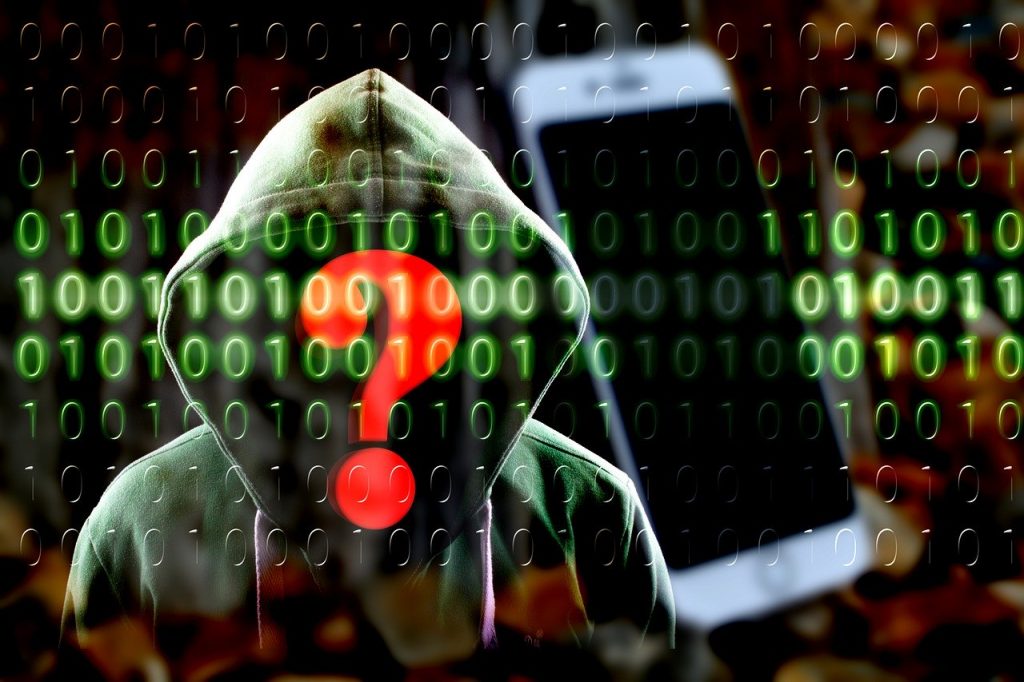Hacking – the activity of using a computer to access information stored on another computer system without permission, or to spread a computer virus
The definition of hacking – sourced from The Cambridge Dictionary https://dictionary.cambridge.org/dictionary/english/hacking
There are three types of hacking – White Hat (legal), Grey Hat (illegal) and Black Hat (illegal) hacking. Black Hat hackers aim to steal data or information, often for financial or personal gain. They do this without permission from the owners. Grey Hat hackers will hack into corporate or private networks without the owners permission. They will inform the owner if they find any firewall gaps in the network or code issues in the software. White Hat hackers tend to hack under the government’s protection or for organisations to check the security of their network.
Most hacking is carried out through the dark web. Hackers use dark web browsers, such as Tor, where the hacker’s activity is untraceable. They then try penetrate the network’s firewall. If they are successful, they will proceed to harvest any data they want, usually to cause maximum disruption or for financial gain.
What are the steps to unethical hacking?
- Reconnaissance This is when the hacker plans and assess the attack. This may include /assessing/ risks and other possibilities of threat to their mission
- Scanning is where hackers dive deeper into the system to find valuable data they wish to harvest
- Gaining access The hacker accesses the system to complete their task.
- Maintaining access The hacker will then build gateways in and out of the network, so they can easily leave and re-access the network without detection.
- Covering tracks This enables the attacker to infiltrate the system unseen, and possibly for a long time.
These steps are not always executed in the above order.
How do hackers affect people’s lives negatively?
Black Hat hacking can be detrimental to corporations such as the Marriott International who suffered a data breach in 2014. It is believed 300 million customers had their data breached in some way. Passport numbers, contact information and travel information were amongst the combination of personal information taken from the guest reservation database.
The attack also saw an estimated 100 million customers who had their credit card numbers stolen, along with their expiration dates. This attack remained unnoticed for 4 years after the infiltration. This incident not only exposed customer data but cost Marriott $72 million. According to a study by the Ponemon Institute in 2018, the average data breach costs corporations $3.86 million.
I believe that it IS unethical to hack without prior permission. The consequences of hacking can cost companies and individuals vast sums of money, cause immense stress and disrupt lives. The hackers may get a thrill out of their efforts, and peer recognition in the hacking community, but the outcome for users of the service can be severely damaging even years after the attack.
How Can I Keep My Information Safe Online?
- Don’t use the same password for more than one account online
- Do change passwords regularly
- When visiting sites, make sure to look for the padlock (🔒) or https://
- Using public and unprotected Wi-Fi is unsafe. It is not always secure, so you information could be compromised.
- Cover up webcams when they are not in use – hackers can hack into your webcam
Want to know more about Ethical Hacking? Read Ethical Hacking: The good side to hacking?
Sources: https://dictionary.cambridge.org/dictionary/english/hacking https://www.csoonline.com/article/2130877/the-biggest-data-breaches-of-the-21st-century.html https://www.theguardian.com/business/2020/aug/19/marriott-international-faces-class-action-suit-over-mass-data-breach https://www.vpnmentor.com/blog/ultimate-guide-to-ethical-hacking/

A very interesting perspective on hacking. As a coder myself, I have always been intrigued by black hatters’ activities but the consequences of their sinister actions can be huge.